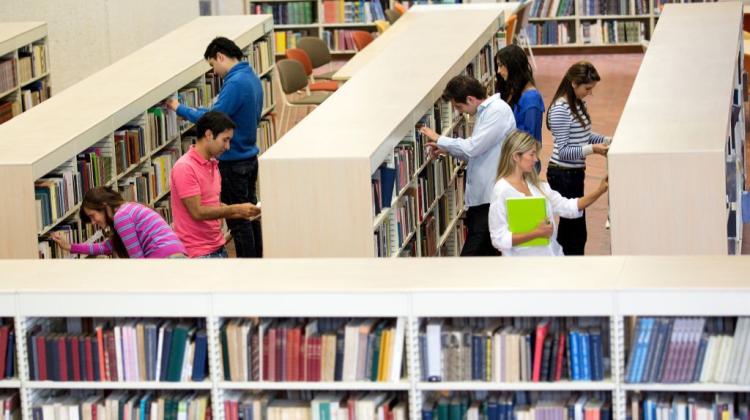Orłowski: cooperation between economy and science in Poland shockingly poor

In Poland we have a shockingly poor cooperation between economy and science. Universities are not interested in commercialization because they have other sources of income, businesses do not trust scientists, and researchers must overcome mental barriers - said Prof. Witold Orłowski.
Chief Economic Adviser for PricewaterhouseCoopers in Poland Prof. Witold Orłowski presented the report "Research Commercialization in Poland. Barriers and Opportunities for Overcoming Them" at a press conference.
According to the report, worth a total of nearly PLN 12 billion per year is conducted in Poland. Government expenditure on research and development is PLN 6.5 billion, half of which goes to research institutes and the other half to universities.
Companies spend PLN 3.5 billion per year on research and development. However, only 0.3 billion zlotys goes to research institutes, and only0.1 billion to higher education institutions. "This is a drop in the ocean" - emphasised Prof. Orłowski.
"In Poland we have a shockingly poor cooperation between economy and science. The research market is virtually non-existent, because there are no fundamental incentives and motivation for both scientists and businesses" - he stressed. This is one of the reasons why in terms of innovation, Poland has one of the last places among the European Union countries.
The economist pointed out the importance of the so-called science brokers who help establish contacts between researchers and businesses. "They have a very important role, because there should be a transmission mechanism between supply and demand. Science and business are two different languages. The researcher may not even realize that the thing he has invented is just what a business needs" - noted the economist.
According to the deputy director of the National Research and Development Centre Leszek Grabarczyk, increasing the role of the inventor is crucial in enhancing innovation and increasing the number of commercialised inventions. "If inventors do not invent, Polish economy will not be innovative" - said Grabarczyk.
One way to motivate positive researchers is the idea of "enfranchisement of scientists" developed by the Ministry of Science and Higher Education. "Transfer of property rights for developed solutions to researchers dramatically increases their motivation to create inventions and finding their commercial applications" - said Grabarczyk. "This is the basic and fundamental problem, even if it raises doubt at universities" - said Prof. Orłowski.
According to the economist, Polish inventors who wants to commercialise their inventions must overcome a number of barriers, including mental barriers. He must reckon with the fact that, for example, that he will be closely watched by the university if he uses college laboratories to make money. As a result, young people who would like to work at universities and commercialise their inventions, after some time, usually leave universities and find jobs in the industry.
Universities themselves are not interested in commercialisation of inventions, because they have other, "more convenient sources of income". "I know the research institutes that have survived for 20 years on leasing the premises they own. An effort is being made to reduce the statutory funding, depending on the number of students, but it will not change so easily" - said the economist.
In the words of Prof. Orłowski, we have to fight for universities and institutes being forced to look for other sources of income. "These mechanisms will surface, because there will be fewer students. This process, however, should be accelerated" - said Prof. Orłowski.
In turn, businesses avoid risk because they do not have sufficient confidence in scientists. Moreover, Poland still does not have so-called business angels, entrepreneurs with capital large enough to seek the opportunity to invest money in new technologies.
"We need national research programs and new industrial policy, seeking - together with business - areas to invest public money" - said the economist. "It\'s not about giving money away, but identifying places where it is needed. One example is the National Health Service in the UK, which agreed with pharmaceutical companies upon public budget for co-financing research, in exchange for having these companies carry out research in the UK" - said Prof. Orłowski.
PAP - Science and Scholarship in Poland
ekr/ tot/ jra/ mrt/
tr. RL
Przed dodaniem komentarza prosimy o zapoznanie z Regulaminem forum serwisu Nauka w Polsce.


















